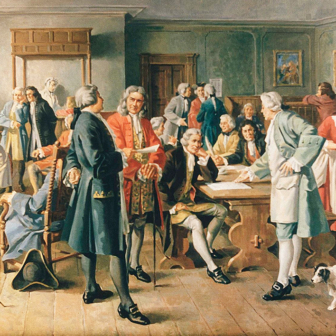“INGLORIOUS” is a word reserved for special moments in political history. The fall of Singapore was one, and the Khemlani Affair and Billy Snedden’s departure from this earth also come to mind. John Howard’s attempt to bowl a cricket ball in Pakistan probably qualifies too.
And so does Senator Stephen Conroy’s attempt at media reform earlier this year. It was inglorious from the moment he declared he wouldn’t budge in his resolve to push his changes through and then dashed, grinning, from the room for a vote on the Senate floor. It was inglorious when it became apparent he was not prepared for the predictable attack from the nation’s media companies. Watching the government shrink under the assault led by News Ltd was unedifying and, yes, inglorious. And it all culminated in perhaps the most inglorious leadership challenge in Australian political history.
The result was the loss of several cabinet ministers, the end of Kevin Rudd’s prime ministerial ambitions (for the time being, anyway), a deeply damaged party and, ultimately, the demise of the government’s only chance to reform media regulation. But the greatest tragedy of all was that Conroy’s proposed changes to media control were widely misunderstood, and in many cases not even considered, by the very people they would have affected most, for better or worse.
How do we know this? On the very day that Simon Crean was begging Kevin Rudd to challenge Julia Gillard, we asked almost 500 people what they knew and thought of Conroy’s plans. Nearly half gave them the thumbs down. The survey also revealed a strong link between media consumption habits and the respondents’ views.
The survey wasn’t random: it was conducted by journalism students in and around Swinburne University of Technology’s Hawthorn campus and in the surrounding commercial district. But it’s important to stress that many among the survey group had little or no interest in the issue.
Devotees of newspapers published by News Ltd, which campaigned vociferously against the proposals, were nearly twice as likely as regular readers of the Age to disapprove of them. Respondents who read the Herald Sun either daily or several times a week harboured few doubts the reforms would “compromise freedom,” as one of them put it. Only two of the eighty people who fell into this category admitted to mixed feelings about the legislation. By comparison, one-in-five Age readers held a more nuanced view of the government’s bills, speaking of benefits and risks flowing from their implementation.
The survey also confirmed that fewer people these days are getting their information from newspapers. Whereas Australians over forty can recall a time when the morning paper’s arrival on the front lawn was a keenly anticipated daily ritual, just over one-third of those surveyed said they read a newspaper either every day or on most days of the week.
When those who, despite misgivings, saw some good in what the government was trying to do are added to the number who supported the legislation, a marked difference between Fairfax readers and News Ltd readers emerges. Adding those who gave the government some credit for its intentions to those who unambiguously supported the legislation, exactly half of the rusted-on Age readership were prepared to entertain the idea that it might be on the right track. The corresponding figure for frequent readers of the News Ltd publications was 16 per cent, or one in six.
Significant proportions of those who completed the survey either didn’t know or didn’t care much about the issue: these included one-in-five Age readers and three-in-ten readers of the Herald Sun or the Australian.
If Age readers’ mixed feelings are apportioned equally between good and bad, their opinion equates to 43 per cent in favour of the government plan, 34 per cent against it, and 23 per cent who don’t know or don’t care enough to form an opinion either way.
Regular Age readers were evenly split – 30 per cent apiece – between those who liked the media proposals outright and respondents who saw them as dangerous. The rest were either mildly opposed, didn’t care or didn’t know enough to say. Combining those who habitually take the Australian or the Herald Sun, 55 per cent declared the Conroy measures a bad thing.
This discrepancy could mean that Melbourne’s metropolitan dailies are shaping public opinion each according to its own bent. Or the difference could simply signify that people prefer to read newspapers that reflect their views. And it should be noted that, while News Ltd editorialised against them, and its chief executive, Kim Williams, took his crusade against them on to late-night television, Fairfax didn’t exactly approve of them. CEO Greg Hywood was a member of the delegation that went to Canberra to lobby senators at the beginning of that decisive week.
The results show that, altogether, nearly half (46 per cent) of those surveyed thought the Conroy media shake-up was to be deplored. The main reason given was that it would interfere with freedom of speech. Typical was the view of one Herald Sun reader, who said: “I really don’t want the government controlling the media.” Another, who read both the Herald Sun and the Age, declared: “Journalists should be free to write what they want, how they want, when they want.”
Enthusiasts for the overhaul also felt passionately, one scrawling on his questionnaire: “Excellent! Damn good idea. Screw Rupert Murdoch and Fairfax (Rinehart).” Another Conroy supporter exclaimed: “Do it, I hate the media! They just brainwash you, that’s why I hate them.”
Only one respondent thought the government should have gone further. That person, interestingly a Herald Sun reader, would have been characterised by the Melbourne newspaper’s Sydney stablemate, the Daily Telegraph, as a Stalinist. It’s a fair bet the Herald Sun doesn’t have many readers like him.
Among the 14 per cent minority of loyal Herald Sun readers who backed the legislation as it stood was a young woman who wrote that it “should be in place because it will help regulate the pubics [sic] opinion on events.” One Age reader mistrusted those on both sides of the debate, declaring himself “suspicious of why they want to rush the reforms. What do the media mongols want?” (We suspect he meant moguls.)
Finally, only one of the 499 respondents told us he bought all three papers – the Australian, the Age and the Herald Sun – most days of the week. It could say something about the complexity of the proposed changes that, when asked what he thought of them, this news-hungry omnivore replied: “I haven’t researched enough to back an opinion yet.” •




